Affiliate links on Android Authority may earn us a commission. Learn more.

Oppo Reno 2
What we like
What we don't like
Our scores
Oppo Reno 2
Be it charging speeds or appealing designs, OPPO has consistently upped the stakes. The original OPPO Reno was a gorgeous piece of kit that took a very different approach with its pop-up selfie camera. The OPPO Reno 2 builds on that foundation and delivers a well-equipped package that oozes style.
What’s in the box
- OPPO Reno 2
- VOOC 3.0 power adapter
- USB-C cable
- Protective case
- Pre-applied screen protector
- Headset
- Quick Start Guide
- SIM Card Tool
The OPPO Reno 2 ships with a very comprehensive package that includes a high-quality case, a pre-applied screen protector, as well as a headset in the box. Additionally, the phone ships with a VOOC 3.0 charger and accompanying USB-C cable, as well as the usual quick-start guides.
Design
- 160 x 74.3 x 9.5mm
- Gorilla Glass front and back
- Aluminum frame
- Shark fin pop-up camera
- USB-C
- Headphone jack
OPPO has made big strides in design and build quality. The Reno 2 embodies all the learnings, and is a downright stunning piece of hardware. From the generally great design to the high-quality construction, this is a phone that screams luxury.
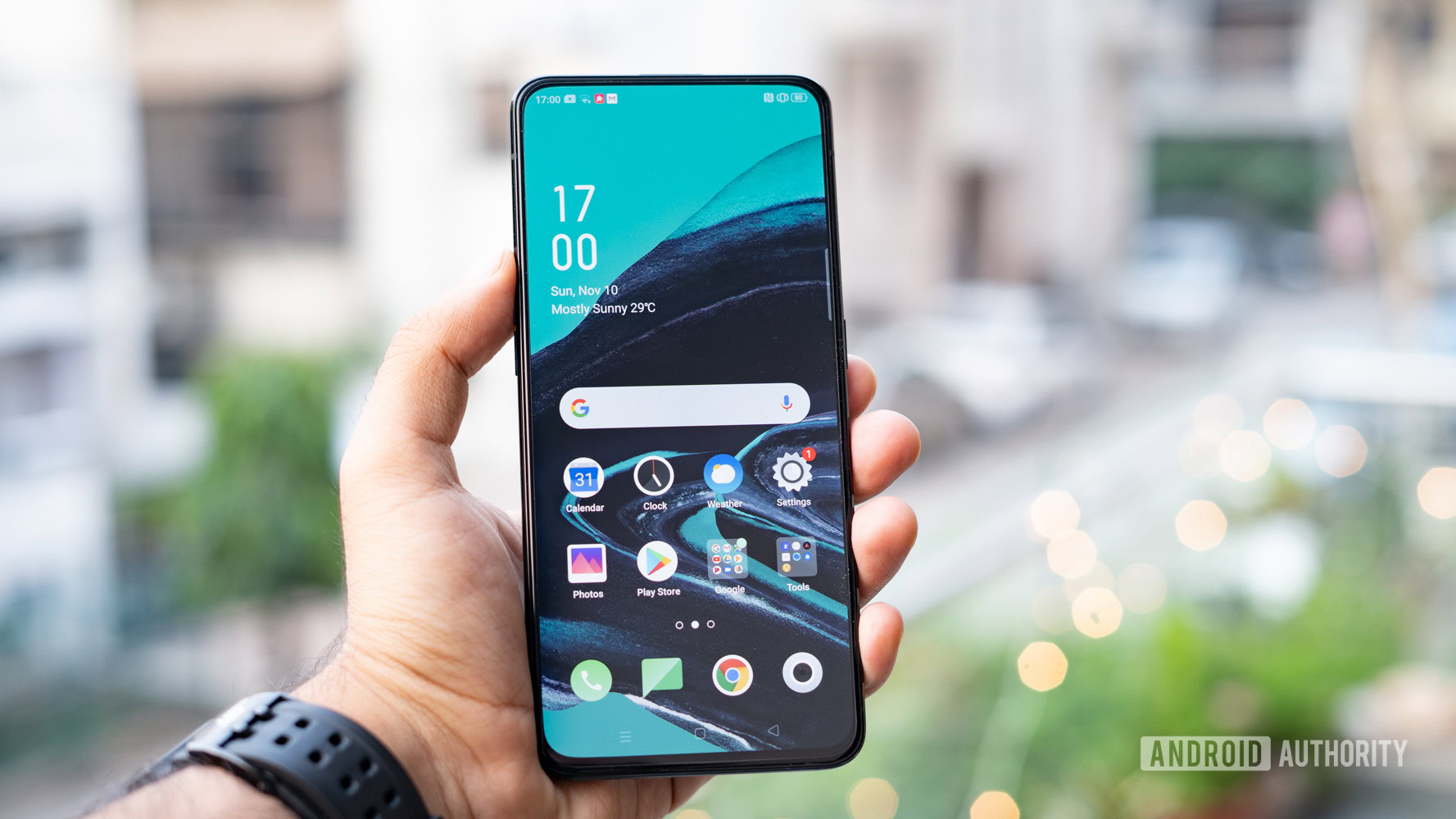
Up front, the phone is an all-screen affair. There are minimal bezels on either side and a barely-there chin along the bottom. The phone employs an in-display fingerprint scanner. I found this to be near-instantaneous in unlocking the phone. That said, the scanner is positioned a bit too low relative to the size of the phone. I found myself bending my thumb awkwardly to reach the fingerprint reader, and I suspect people with larger hands will find this harder still.
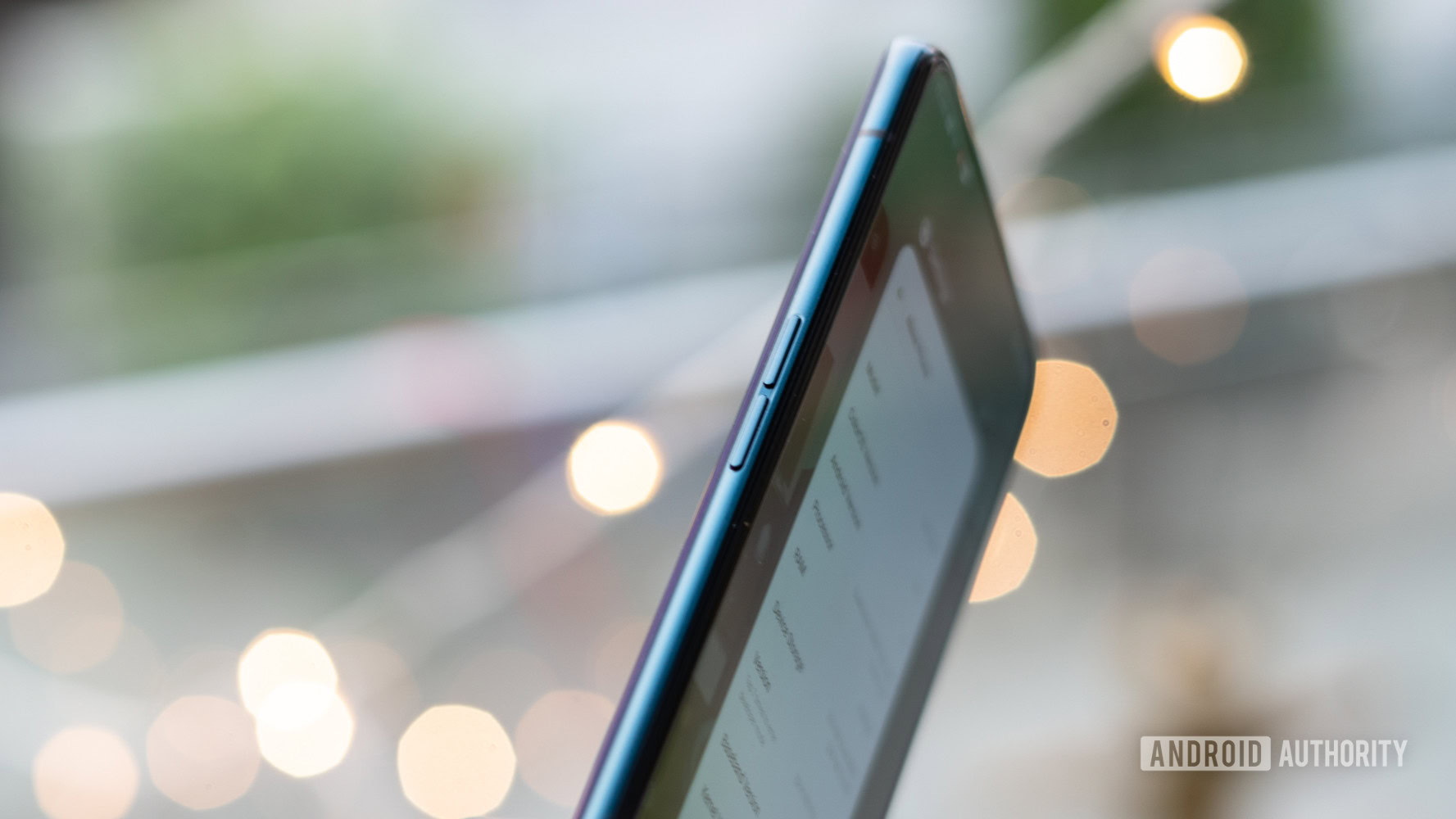
The volume buttons are two separated keys that sit on the left, while the power button is on the right. You can set the power key to activate Google Assistant with a long press. The tactile feedback and general construction is top-tier here. The bottom edge has a USB-C port, a headphone jack, and a single speaker flanking the right side of the USB port.
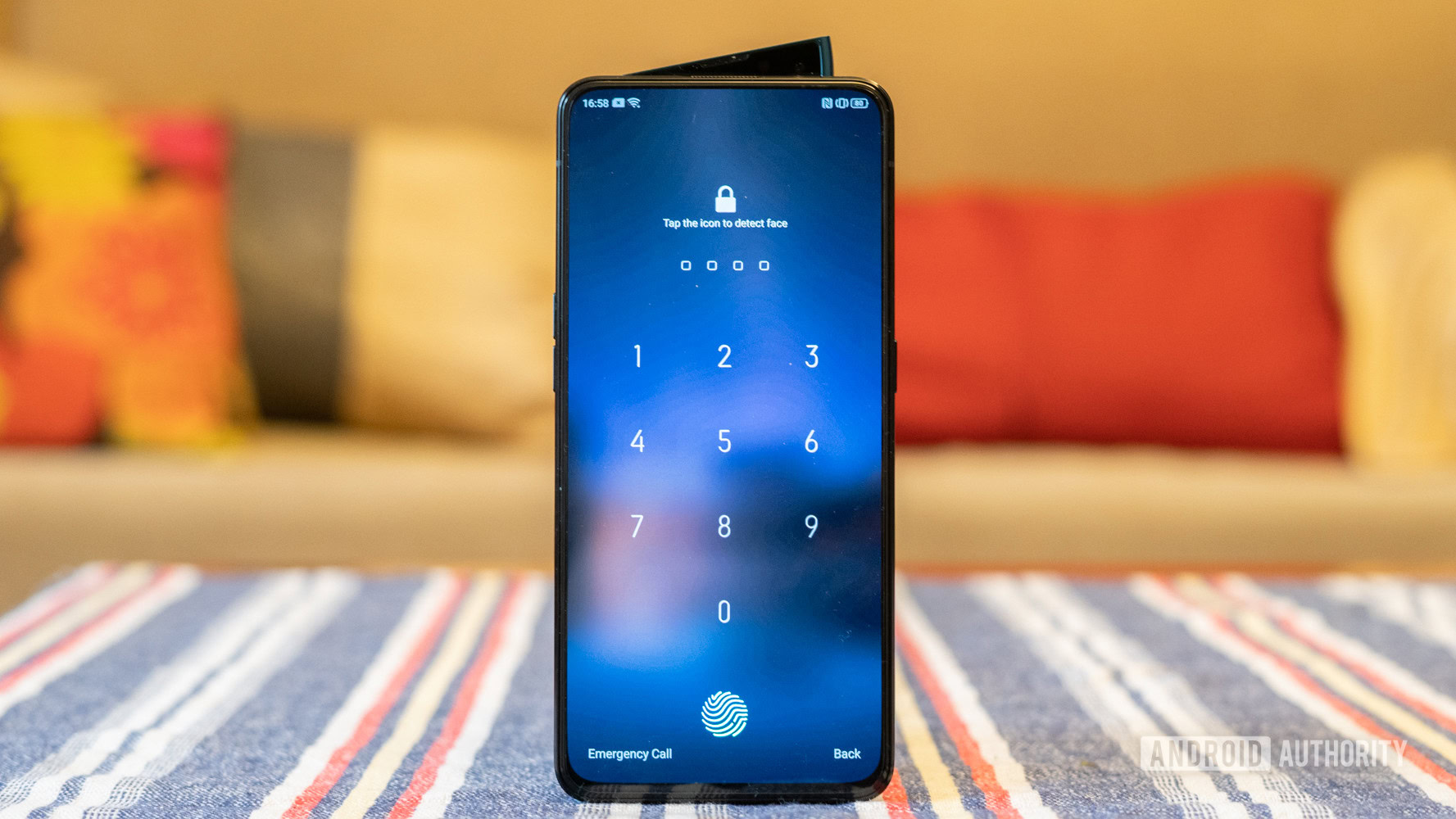
You might be wondering where the front-facing camera is. Call it a party trick, or a design flourish, but the Reno 2 sports the same shark fin camera design that debuted on the original OPPO Reno. It looks cool and helps differentiate the phone from the standard pop-up selfie cameras in the market. There’s little to no functional difference here.
Weighing about 189g, I really like the weight distribution of the OPPO Reno 2. There’s a sense of balance here, and the phone slips into your hand without coming across as overly big or unwieldy, as is the case with devices like the OnePlus 7T Pro. The rear glass panel, however, is quite slippery and a smudge magnet to boot. OPPO managed to keep the rear camera module flush with the shell of the phone, so there isn’t an untoward bulge or protruding element here.
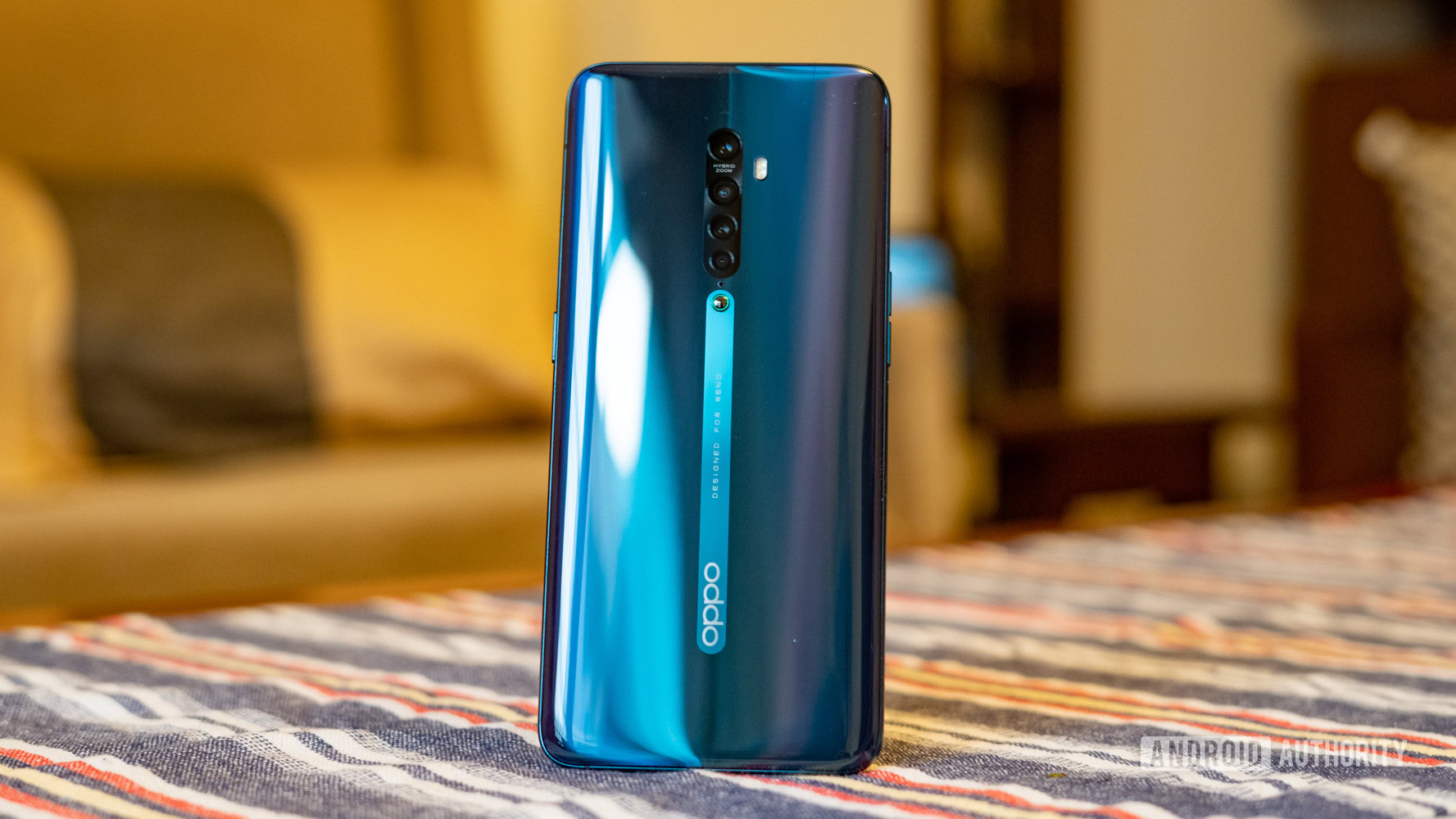
Save for a rounded-off nub that helps elevate the body just a bit when placed on a flat surface, and serves as an anchor point when holding the phone, the rear of the phone is clean. It is, however, very busy. A long strip of branding takes away from the otherwise stunning design. It also doesn’t help that OPPO does not claim any form of IP rating or water resistance for the Reno 2.
Display
- 6.5-inch AMOLED display
- 2,400 x 1,080 pixels
- 401ppi
- 20:9 aspect ratio
The 6.5-inch AMOLED display used on the Reno 2 looks rather good. A lot of it comes down to the sheer uninterrupted canvas that it offers due to the all-screen design, uninterrupted by a notch or cut out. The 20:9 aspect ratio makes it very comfortable to hold as well.

I noticed that the screen skews towards blue tones, which gives it a cooler look. It isn’t the most natural representation, but I’d be nitpicking if I said that it was a dealbreaker. There are options to tweak the color profile, but differences are minimal here. The standard color profile also shifts toward cooler shades.
The display skews toward cooler tones, and peak brightness might not be enough under direct sunlight.
Text and icons look tack-sharp and we measured peak brightness at 475nits, which is just under the 500nits maximum brightness claimed by OPPO. It is good enough for outdoor use, though reflections hinder visibility in bright sunlight. A bit more headroom here would have definitely been helpful.
Performance
- Qualcomm Snapdragon 730G
- Adreno 618 GPU
- 8GB RAM
- 256GB storage
Unlike the OnePlus 7T, the OPPO Reno 2 doesn’t pack a flagship-grade Snapdragon 855 processor. Instead, it makes do with a sub-flagship class Snapdragon 730G, a gaming version of the Snapdragon 730. This doesn’t make much of a difference in daily usage.
Unless gaming is a priority, performance is more than satisfactory.
Unless you count frame rates or want to eke out every last bit of performance, the hardware combination here is more than adequate for gaming and anything else you throw at it. Certainly, the 8GB of RAM helps. I found the phone to be perfectly capable of long sessions on PUBG cranked up to high, without much of heating. Software optimization is great too, and Color OS flows along beautifully without a hint of stutter.
Benchmark performance is predictably lower than competing hardware owing to the stepped-down specs, but I wouldn’t worry too much about it. There’s enough grunt here to power through practically anything you might want to do on the phone. The Reno 2 scored 260533 points in AnTuTu. This is markedly lower than the 370255 points scored by the Redmi K20 Pro and the OnePlus 7T, though these two phones pack the faster Snapdragon 855.
Battery
- 4000mAh
- VOOC 3.0 charger
Between the high-capacity battery, frugal Snapdragon 730G processor, and an optimized software build, battery life on the OPPO Reno 2 is very good. A full day of reasonably heavy use is no hassle for the phone. I routinely ended the day with more than 30% charge left despite extended use of Slack, email, social media, and music apps. In our battery benchmarks, the phone managed over 17 hours of continuous video streaming and over 14 hours of web browsing.
Charging times are speedy enough, but not as good as 30W charging on the OnePlus 7T. Using the bundled 20W VOOC 3.0 charger, you can top-off the phone in just about 85 minutes.
Software
Color OS is a far departure from stock Android. Based on Android Pie, Color OS 6.1 takes an iOS style approach to the interface. There’s no app drawer here, and all the icons are placed right on the home screen. However, Color OS offers options to tweak the interface to your liking. Between grid sizes, wallpapers, transitions, as well as the option to adopt an app drawer layout, you can get the phone looking just how you want.
The phone ships with a short list of pre-installed apps. Most of these are first-party additions like a file manager, theme store, video player, and more. The music party app, for example, lets you pair with other OPPO phones and stream music over them simultaneously. While you can’t get rid of the first-party apps, you can uninstall any unwanted third-party additions.
Camera
- Rear:
- 48MP primary, IMX586, OIS, EIS
- 13MP telephoto
- 8MP ultra-wide
- 2MP depth sensor
- Front:
- 16MP front camera
- Front facing flash
- Video: 4K at 30fps
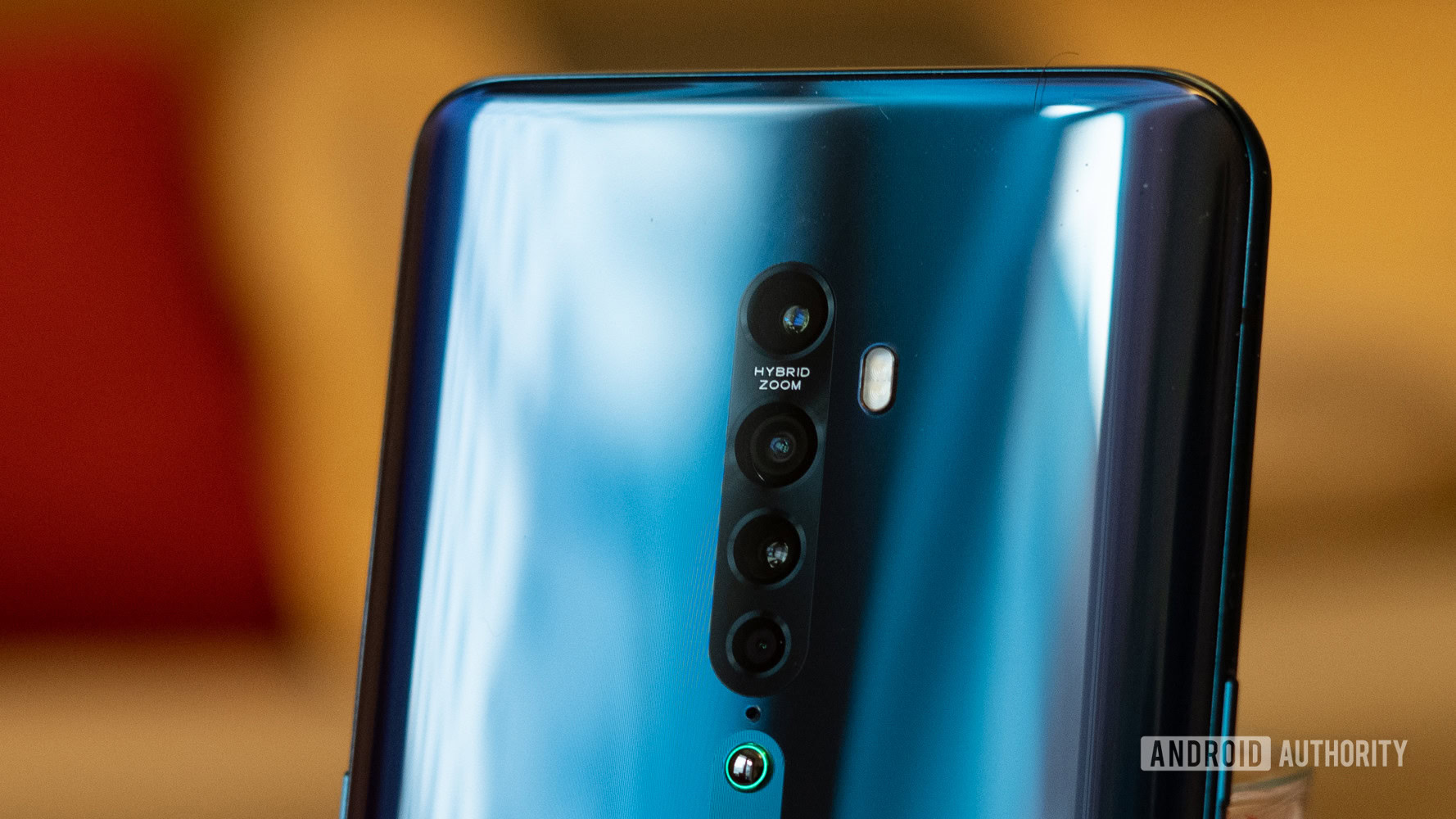
The OPPO Reno 2 has a range of cameras on board, including the now ubiquitous Sony 48MP primary sensor. Alongside, you’ll find a 2x telephoto lens, an ultra-wide camera, as well as a dedicated macro camera. The phone claims to offer up to 20x zoom, but that relies on a combination of the telephoto lens and digital cropping. The results do not hold up, and I would definitely not recommend using this mode in anything but the most necessary conditions.
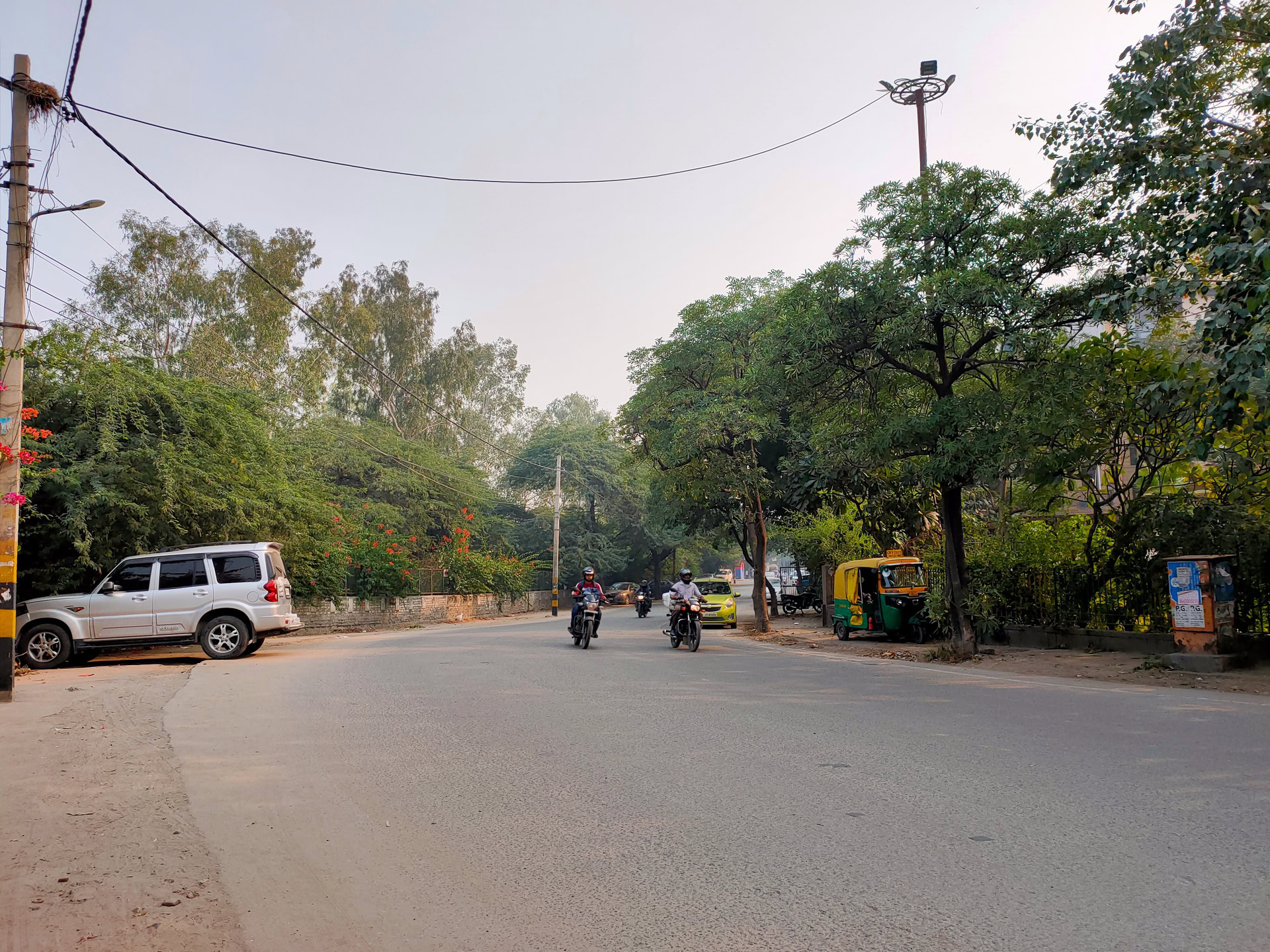
The primary camera on the OPPO Reno 2 is reasonably good. There is some visible sharpening, as well as mild distortion in the corners, but most users should be satisfied. Pixel-peeping reveals some smeared details, but there are no visible splotches or noise-reduction artifacts.
If you prefer punchier colors, the phone ships with a Dazzle Color mode that boosts saturation levels. I found the results to be unnatural looking. The boost in saturation is accompanied with a mild decrease in dynamic range and the end results are a bit excessive. I’d recommend keeping it off. Elsewhere, I was reasonably satisfied with the portrait mode. The phone does an above-average job at edge detection. Even when working with a complex subject like a plant, the bokeh fall-off is as natural looking as you can expect, and edge detection is very good.

Meanwhile, the built in macro mode does a rather good job as it lets get you up close to your subject. You will, however, want to shoot in bright sunlight. Anything other than ideal lighting throws off focus and results in grainy or blurry images.
Like any modern phone worth its salt (we’re looking at you, Pixel 4), the OPPO Reno 2 has an ultra-wide camera as well. I observed a mild difference in the color tuning here. The wide-angle camera opts for a cooler color profile in contrast to the warmer tones of the standard camera.
Telephoto performance is satisfactory up to 2x, and in good lighting, up to 5x. Above that, however, things start breaking down rapidly and the results are decidedly like a low-resolution crop.
The selfie camera on the OPPO Reno 2 is rather good, and captures detailed shots with just a modicum of over sharpening. Tones err on the warmer side, but add to the character of the shots and don’t look bad at all. Portrait mode, even on the front-facing camera, is effective and adds a subtle, yet convincing bokeh fall-off.
Video capture on the OPPO Reno 2 looks great. The resolution tops off at 4K 30fps, but there’s limited noise and videos look punchy without losing dynamic range.
The camera app is utilitarian in that it has all the essential functions integrated. However, I found the UI a bit cluttered and confusing compared to other devices. Features like Night Mode are hidden away; Instead a button for live filters takes up a slot in the interface.
You can take a look at full resolution samples here.
Audio
- Headphone jack
- No AptX support
Audio output from the headphone jack is plenty good. I’ve always liked the slightly warm coloration that OPPO adds to music output. It’s certainly not the most neutral audio signal out there, but it makes for fun listening on the go. I did not notice any untoward hiss, even with high quality earphones. On that note, the included EarPods (AirPod clones) are quite terrible and you will definitely want to switch to a better pair. Unfortunately, there is no support for aptX or aptX HD, so Bluetooth audio isn’t quite the best.
The OPPO Reno 2 pipes out rich sounding music over the speaker.
Output over the speaker isn’t quite as loud as some of the other phones we’ve tested lately. The single, downward-firing speaker on the OPPO Reno 2 makes up for it with rich sound that doesn’t muddy highs, mids, or lows. If you’re planning to watch movies or listen to music on your phone in a quiet room, the Reno 2 would not be a bad choice.
Specifications
| OPPO Reno2 | |
|---|---|
Display | 6.55-inch Dynamic AMOLED 2,400 x 1,080 resolution 20:9 aspect ratio Gorilla Glass 6 |
Processor | Qualcomm Snapdragon 730G |
RAM | 8GB |
Storage | 256GB |
Battery | 4,000mAh 20W VOOC 3.0 fast charging |
Cameras | Rear: Quad camera setup: 48MP (IMX586+OIS+EIS)+13MP (telephoto)+8MP(wide angle) +2MP(Mono Lens) 5x Hybrid Zoom Ultra Dark Mode Ultra Steady Video Front: 16MP + Soft Front Light. AI Beauty Mode, Pop-up camera |
IP rating | No |
Headphone jack | Yes |
Security | In-display fingerprint sensor |
Software | ColorOS 6 Android 9 Pie |
Dimensions and weight | 160mm x 74.3mm x 9.5mm |
Colors | Ocean Blue/ Luminous Black |
Value for money
- OPPO Reno 2: 8GB RAM, 256GB storage — Rs. 36,990, €499, ~$522
The OPPO Reno 2 is a tough beast to define when placed in the context of its competition. The design and build are just as good, if not better than other phones in its price category. The cameras are very competitive, and battery life is a cut above the rest. Where it loses is in sheer hardware proposition. Whilst a Snapdragon 730G processor is good enough for most users, it certainly isn’t best in class. If you plan to hold on to your phone for a while, it becomes even more important to ensure that the device remains speedy enough over the years.
The OnePlus 7T is without a doubt one of the best deals in the sub-Rs. 40,000 (~$560) segment right now. Between the top-of-the-line specifications, rock solid software build, and long-term support, it is an easy device to recommend.
Similarly, the ROG Phone II delivers the goods if you are addicted to smartphone gaming. While the specifications aren’t that different from the OnePlus 7T, The ROG Phone II adds the option of modular accessories that can transform the phone into a portable gaming console.
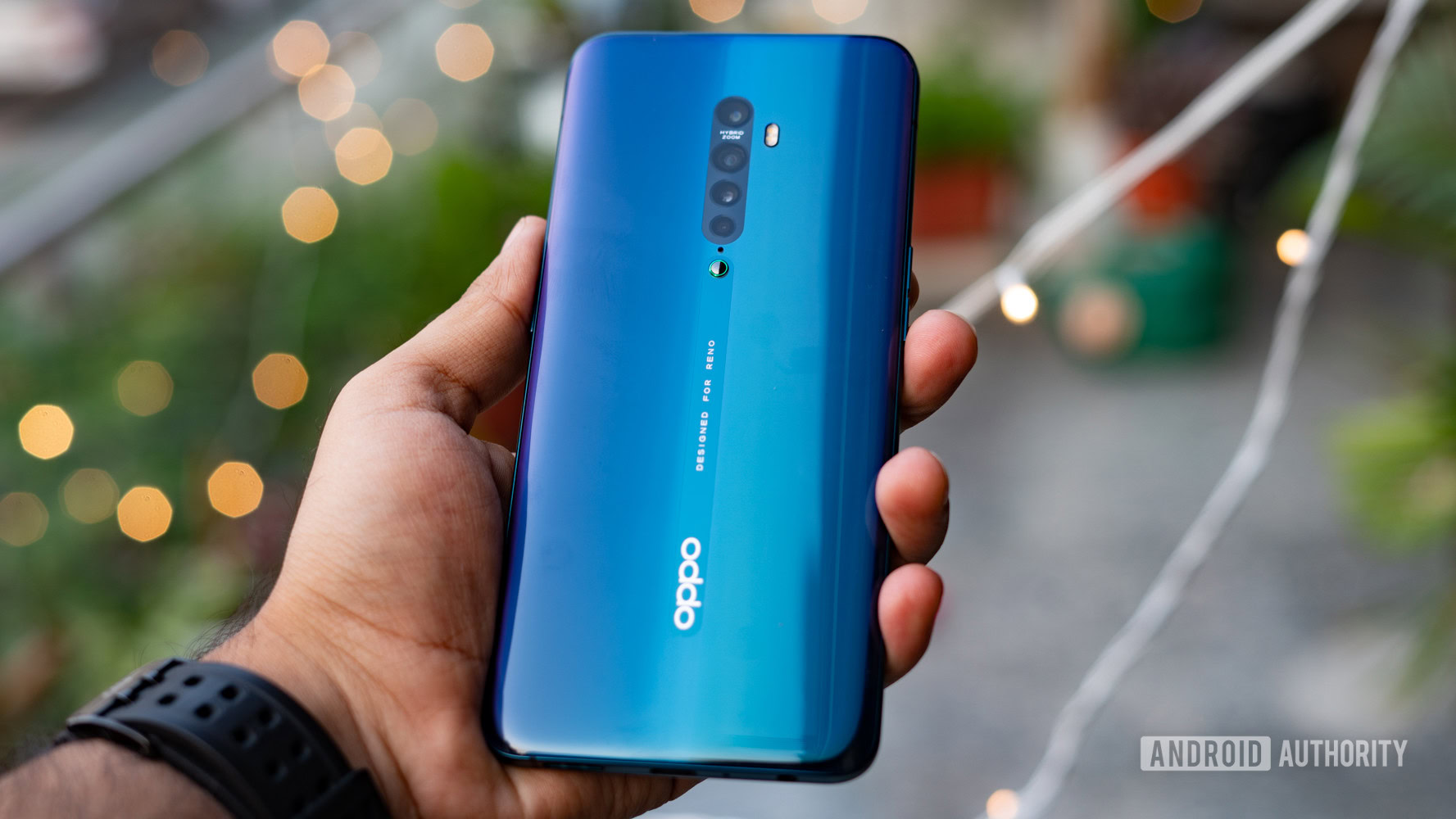
There’s not much wrong with the OPPO Reno 2, and yet in the face of stiff competition, it isn’t the easiest to recommend either. While the premium build and design cohesiveness show a close attention to detail, other phones deliver the same experience. The Color OS software can be polarizing, particularly when the much cleaner build on the OnePlus series delivers a superior experience.
Performance of the OPPO Reno 2 is great, but doesn’t come close to what the Snapdragon 855 can offer. If top-level performance is what you seek, perhaps consider the OPPO Reno Ace, which packs the Snapdragon 855+ and a 90Hz display.
All this is to say the OPPO Reno 2 is a great phone surrounded by excellent phones. You certainly can’t go wrong with it, but other options provide just a bit more value.